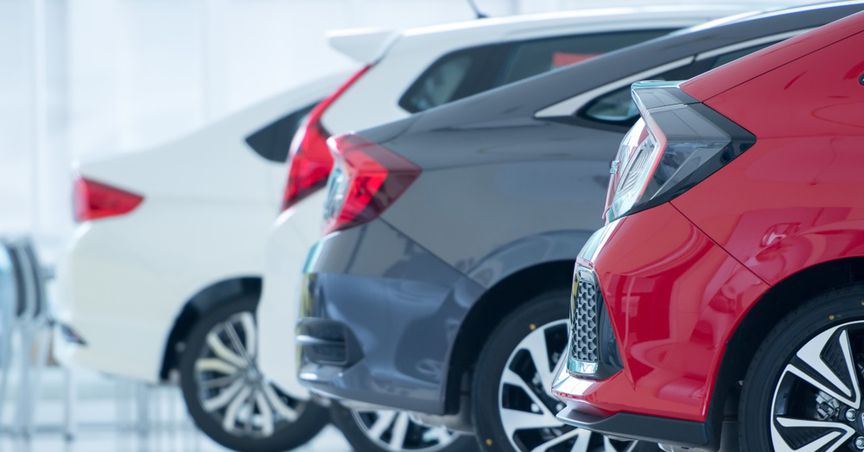Summary
- LAPFF, one of the largest pension fund houses in the United has demanded that fossil fuel cars be phased out by the country by 2025
- The stand taken by the pension fund group is in response to the consultation process initiated by the government over a planned phasing out of such vehicles by 2035
- The surface transport sector is currently responsible for nearly a fifth of all carbon emissions in the UK
- The present emission standard levels of new cars sold in the UK are governed by the EU environmental regulations, which will automatically stand withdrawn on 31 December 2020.
The Local Authority Pension Fund Forum (LAPFF), one of the largest pension fund houses in the United Kingdom has responded to a governments consultation call on carbon emissions and had demanded that all new petrol, diesel and hybrid cars be phased out of the country by 2025. The fund which has nearly £300 billion in asset under management belonging to public workers in the country, is known for raising voice in favour of social causes like carbon emissions, racism, and socially responsible investing. The chairman of the forum Doug McMurdo while speaking on the issue stated that the consultation process of the government actually came a little too late. Sighting the quick response shown by the government in the matter of the coronavirus pandemic, he further stated that the government is capable of taking much swifter action on the carbon emission front as well.
How the current emission levels in the UK is impacting average British citizen
The United Kingdom has a current carbon neutrality target of 2050. However, even by March 2020, it has not been able to meet its commitment of 61 per cent of 1990 carbon emissions levels for 2030. The country’s car road transport industry which is responsible for nearly a fourth of the carbon emissions has not made much progress in the past few years. The use of diesel in road transport has progressively increased in the country in all forms of road transport in comparison to petrol. The diesel vehicles which are nearly seven times as polluting as their petrol consuming cousins receive more consumer preference due to their low running cost and thus explicitly helping the economy control its costs while implicitly bringing it more harm.
Public Health England (PHE) had published evidence some time ago suggesting that between 28,000 and 36,000 deaths in a year in the country are attributable to long term exposure to polluted air. The evidence they presented also indicates towards an increase in the prevalence of chronic diseases like asthma, strokes, coronary heart diseases, lungs cancer and other respiratory diseases to the increased levels of CO2 and other polluting gases in the environment.
British car companies, and their preparations for the new regulations
The car industry in the UK, however, has already been gearing up for a while to meet the environmental challenge. Enhanced emission regulations in most of the countries where British cars are exported has led most manufacturers to invest in new and advanced technologies to reduce emission levels. Other than that the advent of lithium-ion cell batteries in vehicular transport has also started to create an electric car revolution in the European continent. Most of the large carmakers in the UK have active R&D programmes to develop electric vehicles which are at their various stages of frustration.
The top four UK car brands and the way they have been shaping up for the future-
- Aston Martin – Aston martin had recently announced that it would bring to the market its all-electric supercar Rapide E in 2020. However, due to the financial troubles with the company during the year, the rollout has been delayed. The company also has aggressive plans to launch electric vehicles from its other flagship brand Lagonda in the near future.
Aston Martin is a publicly listed Luxury car manufacturer in the United Kingdom having a lineage of more than a hundred years. The company has three production sites in the UK in Newport Pagnell, St Athan and Gaydon in Warwickshire which is also where its headquarter is located.
- Jaguar Landrover - Jaguar Landrover, another iconic car brand of United Kingdom, has also announced the rolling out of several electric car models in the near future. Initially, the company had planned to launch an all-electric version of its popular XJ model which has been running since 1968. Apart from that, the company also produces a cross over battery-electric SUV called I- Pace which has been in the market since March 2018. (Jaguar Land Rover is owned by Indian automobile conglomerate Tata Motors Limited.)
- Bentley Motors Limited – Another British Luxury car manufacture Bentley Motors has also announced plans to bring to the market an all-electric luxury car. However, presently it has on offer a hybrid electric car called Bentayga Hybrid which has been on offer since 2018. Apart from that, the company had also launched an All-electric concept car called EXP 12 Speed 6e in the Geneva motor show in 2017, upon which not much progress has been made since then.
Bentley Motors Limited is currently owned by the Volkswagen Group of Germany.
- McLaren Automotive - McLaren Automotive another British luxury car major, has, however, been struggling with the concept of the electric cars. The company which manufacturers lightweight supercars find the electric batteries that run EV vehicles too heavy to be able to power any of its vehicles. The company, however, has a hybrid supercar model called P1, which could hit the markets later during the year. The CEO of the company Mike Flewitt while speaking on the possibility of the British government ending the sales of new hybrid cars in the country by 2032, said that a longer transition period is required to make that change, but if the government so decides, the company will be ready with an electric vehicle before the deadline. McLaren Automotive is owned by British conglomerate McLaren Group.



